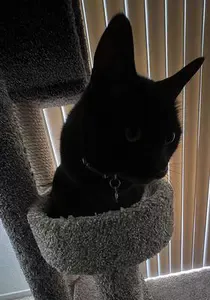FIP Symptom List (Feline Infectious Peritonitis)
Before we get into the FIP Symptom List, a few words about this dangerous cat illness are in order...
FIP stands for Feline Infectious Peritonitis, also referred to as Feline FIP. It is the most feared disease in catteries, as it is the leading infectious cause of cat death.
The FIP symptom list ranges from sneezing, to fever, to a lethal array of body system breakdown.
It should be noted that not all cats exposed to the virus that causes feline infectious peritonitis will display symptoms, nor will all develop Feline FIP.
FIP is caused by a coronavirus infection (FCoV). Infected cats shed coronavirus in their saliva and feces, which is why crowded conditions allow the virus to spread from cat to cat.
Most cats with healthy immune systems who become infected will shed FCoV for up to two months, and fight off the virus. Some cats, however, will develop FIP. The onset of FIP can sometimes be weeks, months, or years after the initial infection.
What's more, the symptom list includes symptoms that are common to many other ailments and conditions. In addition, symptoms can be very individualized. There are two types of the disease (wet, or effusive, and dry, or non-effusive), and different areas of the body may be affected in each cat.
As such, it is difficult to diagnose on symptoms alone.
To further complicate matters, tests for Feline FIP are not always accurate. This is in part because exposure to the virus can cause the cat's immune system to produce antibodies, even though she never develops the fatal disease.
As one source puts it, the antibody test is meaningless for diagnosis of FIP. Here's more...
"As with so many aspects of FIP, testing remains problematic. To date, there is no way to screen healthy cats for the risk of developing FIP. Antibody titers are poorly correlated with risk of FIP and should not be used to screen healthy cats. In addition, cats that have been vaccinated with some types of vaccines may test falsely positive on coronavirus antibody tests due to cross-reaction between components of the cell culture used to produce the vaccine and test system components."
In fact, sadly, the most reliable way to confirm diagnosis of FIP is during a necropsy (autopsy).
Common Symptoms
Some cats may exhibit signs of a mild respiratory infection, with symptoms including sneezing, watery eyes, and watery nasal discharge. Other cats may experience a mild intestinal disease.
The most common symptom "short list" for FIP in younger cats are recurring fever that is non-responsive to antibiotic treatments, lethargy, and failure to grow.
Additional symptoms will depend on what form of the disease is present, wet or dry FIP (it should be noted that there can be combinations of both).
The signature wet FIP symptom is development of a yellow fluid with high protein content in the chest or abdomen. This fluid buildup may put pressure on the lungs and cause breathing problems or abdominal distention.
Dry FIP symptoms include the growth of masses (granulomas) on the kidneys, mesenteric lymph nodes, in the brain, and the eyes. Usually, cats with dry FIP will have signs of associated neurological or ocular conditions. Such as a change in color or cloudiness in the iris of the eye, or wobbling while walking.
Feline FIP Symptom List
Any of the following clinical signs in your cat could be due to Feline Infectious Peritonitis:
- recurring fevers
- weight loss
- inappetance
- increased laziness
- sudden swelling of the abdomen
- any change in colour of the iris or any cloudiness in the eyes
- bleeding in the eyes
- difficulty breathing (the cat breathing through her mouth)
- loss of balance or sudden clumsy appearance
- fits or seizures
- personality changes
Of special importance to cat breeders, the following signs and symptoms in kittens should alert you to the possibility of FCoV being present in your cats:
- kittens of uneven size in a litter
- diarrhea in kittens near 5-7 weeks of age
- sneezing or discharge from the eyes
Recommended Reading
FIP information at Vetfinfo.com
Feline FIP and Coronavirus from Dr. Diane Addie
Cat Health
Cat Illness Symptoms
Cat Lovers Only


Comments: What do you think?
Have your say about what you just read. Leave me a comment in the box below.